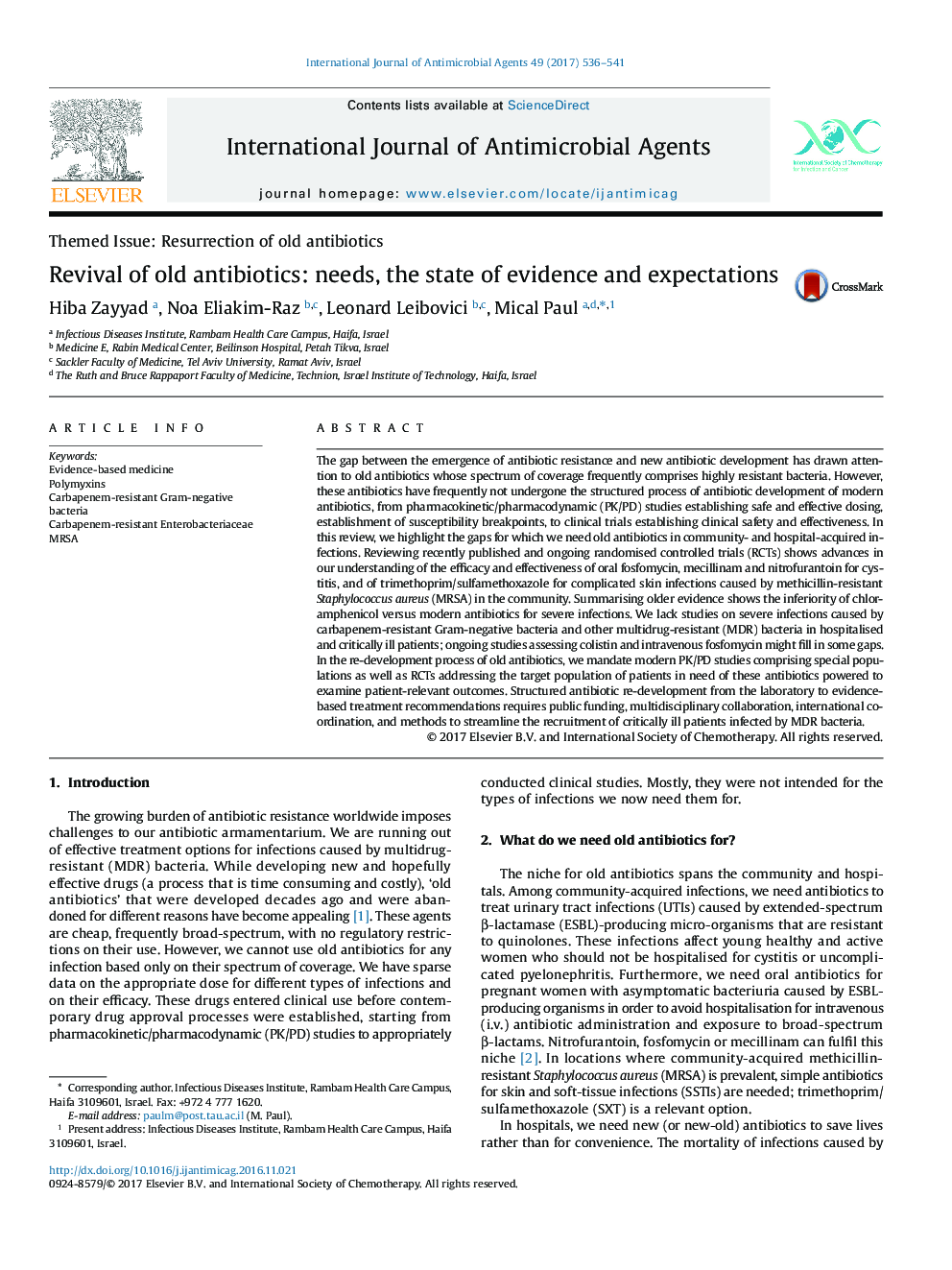| Article ID | Journal | Published Year | Pages | File Type |
|---|---|---|---|---|
| 5667021 | International Journal of Antimicrobial Agents | 2017 | 6 Pages |
â¢Revival of old antibiotics is necessary to treat bacteria resistant to all modern antibiotics.â¢Revival mandates a structured re-development process to optimise safe and effective use of old antibiotics.â¢Contemporary evidence and ongoing randomised controlled trials assessing the effectiveness of old antibiotics are reviewed.
The gap between the emergence of antibiotic resistance and new antibiotic development has drawn attention to old antibiotics whose spectrum of coverage frequently comprises highly resistant bacteria. However, these antibiotics have frequently not undergone the structured process of antibiotic development of modern antibiotics, from pharmacokinetic/pharmacodynamic (PK/PD) studies establishing safe and effective dosing, establishment of susceptibility breakpoints, to clinical trials establishing clinical safety and effectiveness. In this review, we highlight the gaps for which we need old antibiotics in community- and hospital-acquired infections. Reviewing recently published and ongoing randomised controlled trials (RCTs) shows advances in our understanding of the efficacy and effectiveness of oral fosfomycin, mecillinam and nitrofurantoin for cystitis, and of trimethoprim/sulfamethoxazole for complicated skin infections caused by methicillin-resistant Staphylococcus aureus (MRSA) in the community. Summarising older evidence shows the inferiority of chloramphenicol versus modern antibiotics for severe infections. We lack studies on severe infections caused by carbapenem-resistant Gram-negative bacteria and other multidrug-resistant (MDR) bacteria in hospitalised and critically ill patients; ongoing studies assessing colistin and intravenous fosfomycin might fill in some gaps. In the re-development process of old antibiotics, we mandate modern PK/PD studies comprising special populations as well as RCTs addressing the target population of patients in need of these antibiotics powered to examine patient-relevant outcomes. Structured antibiotic re-development from the laboratory to evidence-based treatment recommendations requires public funding, multidisciplinary collaboration, international co-ordination, and methods to streamline the recruitment of critically ill patients infected by MDR bacteria.
